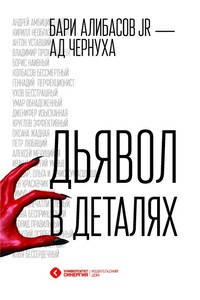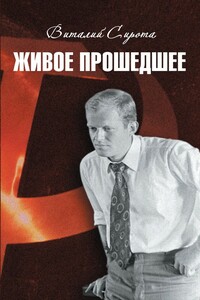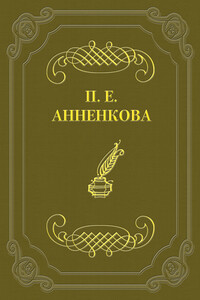The Boy Scouts In Russia - [17]
That was all he could find out. He arranged for word of Boris's seizure to be sent to his father, and then closed his circuit and went below, in search of old Vladimir.
By now it was afternoon, and Fred began to think that if Boris had been coming back that day he would have arrived already. Plainly, it seemed to him, Colonel Goldapp must have decided to retain him as a prisoner. He wanted to get down near the parsonage again, but he was afraid to venture out by the secret passage. He didn't know how thoroughly he had frightened the soldier who had so nearly caught him. If the man had recovered his wits and decided that it was no ghost, but a very substantial and real person who had bowled him over, there would doubtless be a guard in the hollow, by the outer entrance of the tunnel. And, in any case, it was too risky to seek egress by that means again in broad daylight.
"Vladimir," he said, when he found the old servant, "I want you to make me look like a German, if you can. Disguise me, so that I may go down toward the village safely. Is it possible?"
Vladimir studied him for a moment.
"I think so," he said. "There are plenty of clothes here, and there is a man who has often helped when there were to be private theatricals."
The transformation was soon completed, and when he looked at himself in a glass Fred had to laugh. His clothes were those of a Prussian peasant, and a few very slight changes in his appearance had been made by the man to whom Vladimir had spoken. They worked wonders, and Fred decided that he could go anywhere in Prussia now with impunity.
"Is it safe for you to leave the house?" he asked Vladimir.
"Yes, for they think that I am harmless," said the old man.
"I wish to know how to open the door of the tunnel from the outside," said Fred. "But I think it would be unsafe to go there directly. It will be better for you to start out and get there as if you had gone by chance. It is near the parsonage where my cousin is, and if anyone questions you, you could say, I should think, that you wanted to be near your master."
"Yes," said Vladimir. "That would be safe."
"Then do you go there and stay, unless they drive you away. I will go there, too, if I can, and if the coast is clear and no one is watching, you can show me. Unless, indeed, you can tell me now?"
"It will be better for me to show you," said Vladimir. "The looks of the outside change constantly. A storm will destroy a bush, or some other landmark there, and, though I could touch the proper spot in the darkness myself, I would find it hard to describe it to you. I will start at once?"
"Yes. And I will come to you, if it is safe, as soon as I can. I should not be more than ten minutes behind you in reaching the hollow."
Nothing about the whole adventure upon which he had embarked so strangely, and with so little intention on his own part, impressed Fred more than the unquestioning obedience old Vladimir yielded to him. More than ever before, he realized that the Suvaroffs must indeed be as great a family as his mother had declared. Though she had become a true American, Mrs. Waring had never ceased to love the land of her birth, and she had always tried to impress Fred with her own feeling for the great house to which she had belonged.
"Such families as the Suvaroffs can do much harm to themselves and to others," she had said. "But they can also be of great service to those of their blood, to those who are dependent upon them, and to their country."
The truth of this was constantly being impressed anew upon Fred at this time. He was struck especially by the difference between the way that the people of this house treated Boris and himself, and the attitude that had been noticeable in those who had served his uncle, Mikail Suvaroff. Mikail was decidedly a greater figure than Boris's father. Yet it was not devotion that he seemed to inspire. He won obedience, not because his people were devoted to him, but because he had filled them with fear, and because they knew the consequences that would certainly follow if he were displeased in any way.
It was still light when Fred left the house. He went out by a side entrance, reaching the road from the garden. Vladimir had gone down the hill before him. It was understood that he would manufacture some errand as an excuse for his appearance in the village. A number of the people of the village were in the road near the great house; they stared at it curiously, and with hostile murmurs. They paid no attention to Fred, however, and this convinced him that his disguise was good. He passed near them, and he breathed more freely when he had gone by.
At the foot of the hill he turned away from the village. Here he remembered something that both amused and annoyed him. He had not asked just where the parsonage was. He knew its location with reference to the outer portal of the tunnel, to be sure, but he had come to that underground. However, he remembered where the sun had been when he had emerged into the open air before, and, after some profitless scouting about, a passing motorcycle set him on the right track. It set him thinking, too.

Эта необычная книга содержит в себе реальные истории из мира сегодняшнего российского бизнеса. В одних рассказывается о том, как предприниматели успешно разрушают бизнес-предрассудки «теоретиков», в других, наоборот, описаны катастрофические провалы, возникшие в результате принятия правильных, на первый взгляд, решений.Написанная с присущим автору остроумием книга «Дьявол в деталях» не столько о кейсах, сколько о правде жизни типичных российских предпринимателей.«Фишка» книги — авторские иллюстрации-«демотиваторы».Книга будет интересна широкому кругу читателей, занимающихся бизнесом, но особенно будет полезна тем, кто только собирается открыть собственное дело.2-е издание, стереотипное.

В книге рассказывается история главного героя, который сталкивается с различными проблемами и препятствиями на протяжении всего своего путешествия. По пути он встречает множество второстепенных персонажей, которые играют важные роли в истории. Благодаря опыту главного героя книга исследует такие темы, как любовь, потеря, надежда и стойкость. По мере того, как главный герой преодолевает свои трудности, он усваивает ценные уроки жизни и растет как личность.

Мемуары В. Г. Сироты (1944 г. р.) – петербургского ученого, преподавателя, основателя первой в СССР частной почтовой компании – охватывают несколько десятилетий XX и XXI веков. Среди персонажей книги социолог Игорь Кон, актер Николай Лавров, обладатель крупнейшей в мире коллекции неофициального русского искусства Георгий Михайлов и многие другие видные ленинградцы и петербуржцы.В книге сохранены особенности авторской стилистики.

«Ваше величество, позвольте матери припасть к стопам вашего величества и просить, как милости, разрешения разделить ссылку ее гражданского супруга. Религия, ваша воля, государь, и закон научат нас, как исправить нашу ошибку. Я всецело жертвую собой человеку, без которого я не могу долее жить. Это самое пламенное мое желание. Я была бы его законной супругой в глазах церкви и перед законом, если бы я захотела преступить правила совестливости. Я не знала о его виновности; мы соединились неразрывными узами. Для меня было достаточно его любви…».

В книге рассказывается история главного героя, который сталкивается с различными проблемами и препятствиями на протяжении всего своего путешествия. По пути он встречает множество второстепенных персонажей, которые играют важные роли в истории. Благодаря опыту главного героя книга исследует такие темы, как любовь, потеря, надежда и стойкость. По мере того, как главный герой преодолевает свои трудности, он усваивает ценные уроки жизни и растет как личность.